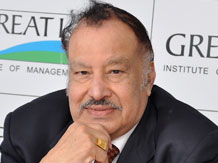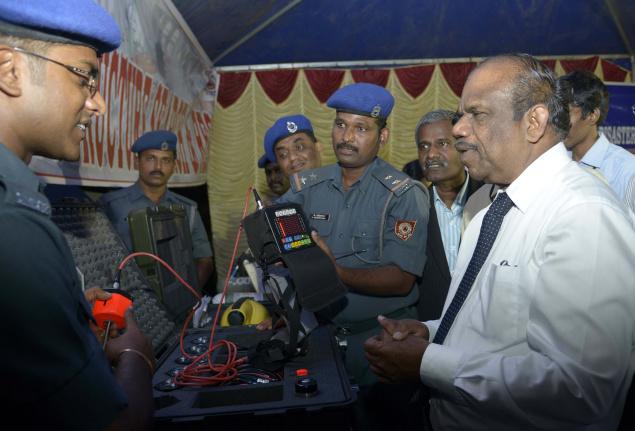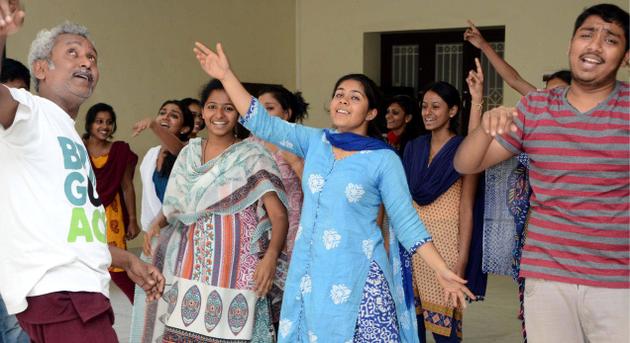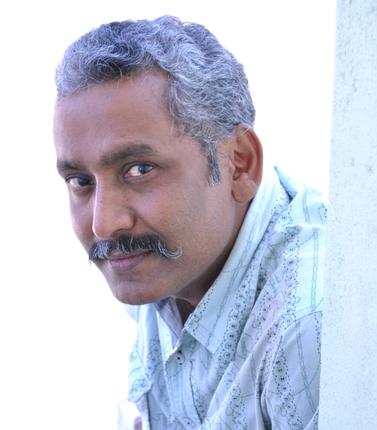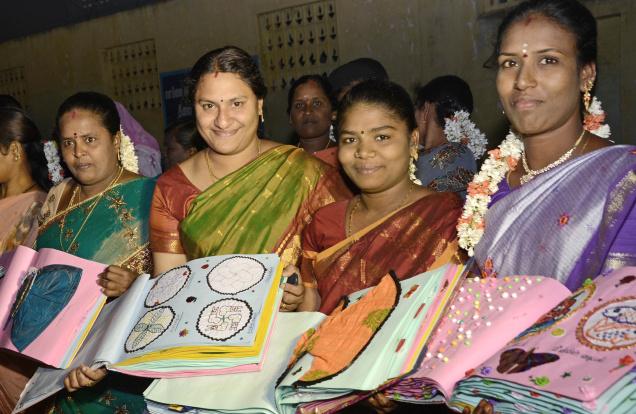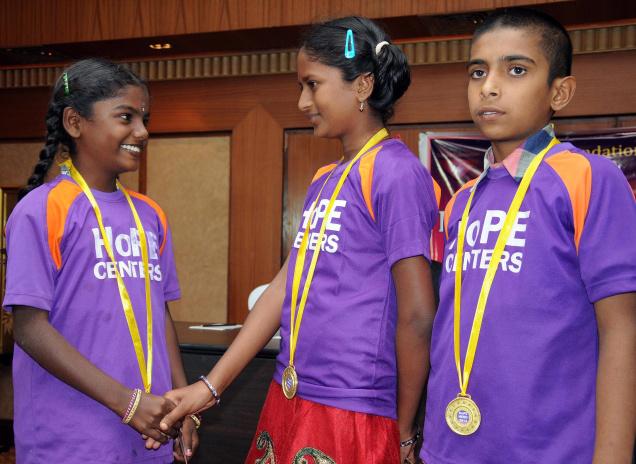
Twelve-year-old N. Archana, a native of Edayapatti village in Pudukottai district, wakes up early, cooks rice and curry, goes to school and often returns home to be beaten up by her drunken father.
In between this all this, she finds time to take care of a 100-year-old blind woman who she fondly refers to as ‘Periyandi paati’ who lives in her village. On Wednesday, she emerged as a winner of the Hope Hero 2013 award instituted by Tripura Foundation, a non-profit organisation that aims to help underprivileged women and children.
“My grandmother asked me to take care of Periyandi Paati. If I don’t, who else will? Every morning, I help her clean herself, buy her coffee and breakfast with the little money I have and call the 108 ambulance service if she falls ill. Now, I want to use this prize money of Rs. 4,000 to help her,” says Archana, who learnt to be optimistic and service-minded at the HoPE Learning Centre, founded by Tripura Foundation.
A.A. Gowtham, who works with Tripura Foundation, said they adopt the phonemic intelligence technique to teach children. “In this method, we teach them sounds with vowels and consonants that activate specific parts of the brain. It helps in improving their concentration, memory, intelligence and even makes them more compassionate,” he said.
Elaine Kueper, global director of Tripura Foundation, said these sound techniques that were taught by Baskaran Pillai, founder of Tripura Foundation, personally helped her overcome depression in her life. “People who have been benefitted by this technique keep sending donations which enable us to keep these centres functioning,” she said.
R. Maithin Raj, another student of HoPE who also emerged as one of the winners, had persuaded his friend Ajit’s parents who discontinued his education to resume it. “Due to poverty, his parents wanted him to work and forced him to leave school. Then, I had a tough time convincing them and took help from one of the HoPE officials to do it. Finally, it worked and he should be back in school very soon,” he said.
source: http://www.thehindu.com / The Hindu / Home> News> Cities> Chennai / by Staff Reporter / Chennai – January 30th, 2014
